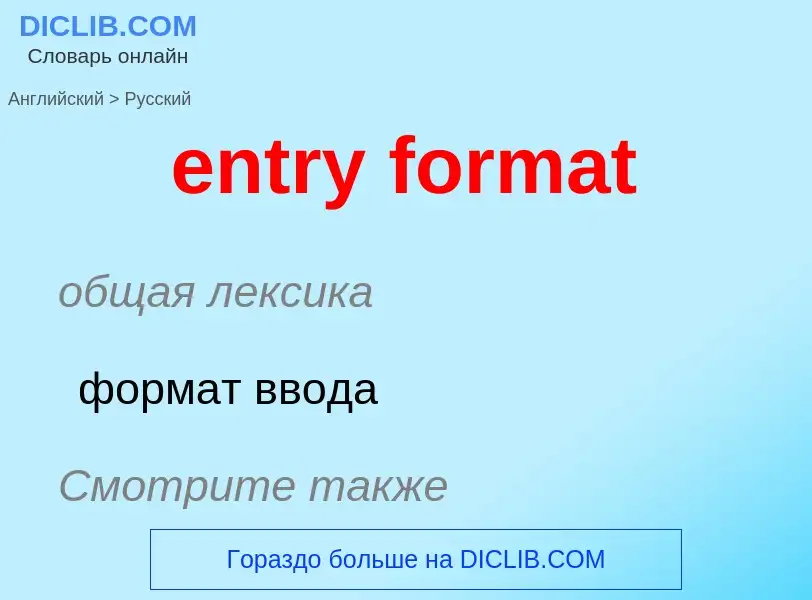Перевод и анализ слов искусственным интеллектом ChatGPT
На этой странице Вы можете получить подробный анализ слова или словосочетания, произведенный с помощью лучшей на сегодняшний день технологии искусственного интеллекта:
- как употребляется слово
- частота употребления
- используется оно чаще в устной или письменной речи
- варианты перевода слова
- примеры употребления (несколько фраз с переводом)
- этимология
entry format - перевод на Английский
['fɔ:mæt]
общая лексика
формат
схема расположения и представления данных при хранении, вводе-выводе с/на внешние устройства или пересылке по компьютерным сетям
размечать, форматировать
формат издания
строительное дело
форма, вид
синоним
Смотрите также
существительное
['fɔ:mæt]
общая лексика
формат (книги)
размер
форма
характер
вид
программирование
формат
форма записи или представления информации
вычислительная техника
разметка или формат диска
формат записи
Франция
формат книги
глагол
вычислительная техника
форматировать
полиграфия
оформлять (книги и т. п.)
Определение
Википедия
Book entry is a system of tracking ownership of securities where no certificate is given to investors. Several terms are often used interchangeably with "book entry" shares including "paperless shares", "electronic shares", "digital shares", "digital stock certificates", and "uncertificated shares". Some of these terms have somewhat different connotations but, at least in the United States, state securities laws only recognize certificated and uncertificated shares. In the case of book-entry-only (BEO) issues, while investors do not receive certificates, a custodian holds one or more global certificates. Dematerialized securities, in contrast, are ones in which no certificates exist; instead, the security issuer, its agent or a central securities depository keeps records, usually electronically of who holds outstanding securities.
Most investors who use an online broker or even a regular full-service broker will have their shares held in book-entry form. This is generally convenient, as one does not have to preserve physical stock certificates, and can buy/sell securities without turning certificates in or having new ones issued. Also, replacement costs for certificates are high in case one loses them, while book-entry ownership can never be lost thanks to technological backups.


![<code>FORMAT.CMD</code> in [[CP/M-86]] <code>FORMAT.CMD</code> in [[CP/M-86]]](https://commons.wikimedia.org/wiki/Special:FilePath/CPM-86.png?width=200)
![<code>FORMAT.COM</code>, among several other commands, in [[IBM PC DOS]] 1.0. <code>FORMAT.COM</code>, among several other commands, in [[IBM PC DOS]] 1.0.](https://commons.wikimedia.org/wiki/Special:FilePath/IBM PC DOS 1.0 screenshot.png?width=200)
![format}} command on [[ReactOS]] format}} command on [[ReactOS]]](https://commons.wikimedia.org/wiki/Special:FilePath/ReactOS-0.4.13 format command 667x514.png?width=200)
